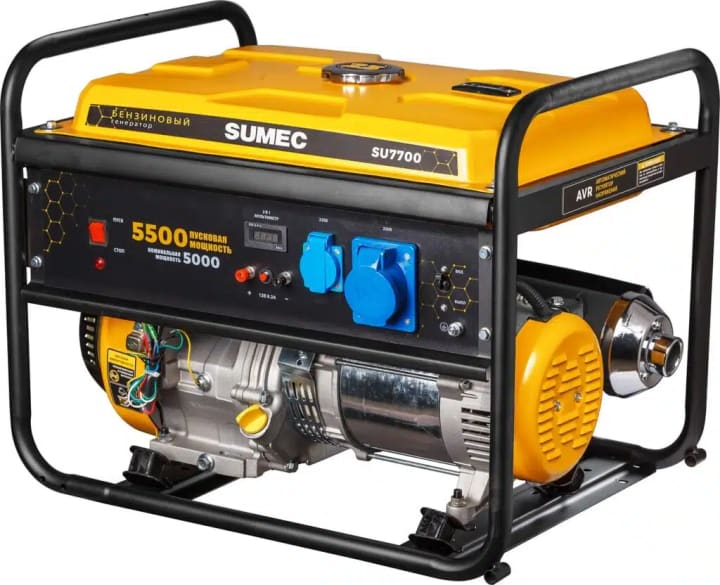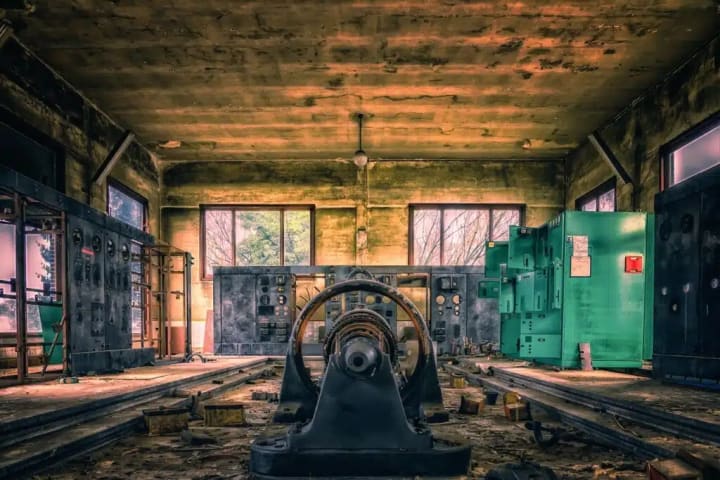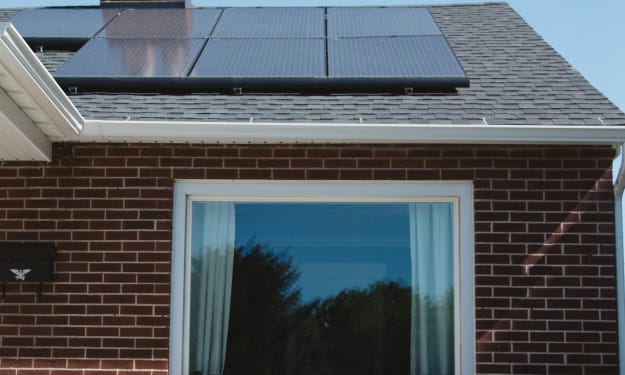What is an electric generator?
The gasoline electric generator is also known as a generator set

In this article we explain how to use it and how to choose the right model for you. A gasoline electric generator is a machine that produces electric current. If we specify a little more we could say that it is a machine that transforms mechanical energy into direct or alternating current.
This type of generators is substantially composed of an internal combustion engine , fueled by gasoline . Combustion moves the pistons inside; this movement generates mechanical energy through the alternator. And so, thanks to the principle of electromagnetic induction, electricity is produced.
Current generator: the pros and cons
The electric generator is very useful because it can be used to bring electricity to an environment where there is none. For example, let's think about a space without electricity . Let's let our imagination run wild. Where could we need it? On a boat, in a caravan, in a tent, in a garden, even in stalls or stands in the market or at street fairs.
Although if it were so wonderful we would always use this type of electric generator instead of common electricity. Obviously these devices have their pros and cons . The advantage is the one we have just described, namely that of being able to use electricity where there is none. On the other hand , it is like a car that uses gasoline to run. And, therefore, you have to calculate the times of use well , so as not to run out of gasoline, and therefore, without electricity, and not to spend more than necessary. Another point against would be the noisegenerated by these devices. A problem that, fortunately, with modern generators has been very limited, but certainly not completely excluded.
How to use the generator
In most cases, the current generator is put into operation by means of the classic manual extraction system . Some models, however, have a starter connected to a battery to operate it. This implies a splendid advantage over the pull start, but also an increase in the size and weight of the machine. First of all, the gasoline must be put into the appropriate tank and, obviously, we must be careful with the amount and type of gasoline that we put in, as this will depend on each machine and each manufacturer. Just like the cars. Once you have gasoline, you can connect it and proceed with the ignition and the connection to the cable socket that will have to take the energy to the point where it is needed.
Important: the electric generator must always be placed in an open place and on a flat surface. We must think that it releases gases that could be harmful inside.

Electric generator
Which model to choose
When choosing the electric generator it is essential to know what is the purpose for which it is purchased. These devices, depending on the model, can supply single-phase or three-phase power . The single-phase (220 V) are recommended to power spotlights, radios, drills or grinders. The three-phase, on the other hand, are used to power devices that require a greater amount of current, such as an oven or industrial machinery, for example.
If the generator must be moved frequently, another feature to consider is the weight of the unit. A small machine can weigh around 15-20 kg, but it can easily reach a weight of 100 kg.
The ability to move it , tied directly to the previous feature. The smallest generators are easily transportable, the larger ones less (and for this reason they are sometimes equipped with wheels) and, in some cases, they can even be fixed.
Noise level
As we have discussed before, power generators are, in most cases, noisy . Prolonged use could become very annoying for those nearby. Today, however, the noise level has been greatly improved , even if not completely eliminated. In addition, there are also very quiet generators, since their work requires continuous use.
They are generally those used for industrial purposes. Even so, it is another of the things that we should take into account when buying a device like this, if we have people around or the time of use that we will give it.
Maintenance of electric generators
Like any machine, generator maintenance is essential for its useful life and to always have maximum performance.
- Always place it on a surface or table that does not make it come into direct contact with the ground: the generator is afraid of humidity , which can affect its operation.
- When not in use, the power generator must be protected from the elements by keeping it indoors or, at a minimum, by providing it with a protective tarpaulin.
- If the period of inactivity lasts too long, for example more than a month, it is recommended to clean the engine and empty the residual fuel tank.
- The oil level should always be checked.
- Check the cleanliness of the spark plug and the air filter.
- Replace oil, filter, and spark plug generally every 100 hours of power generator use.
Conclusions
We can say that the current generator is an excellent device to bring current where there is none. Even with the small disadvantages described in this article. Even so, we must always know what we want, what we need and how we impact the environment and society as little as possible.

Places that can't be left without electricity
In places where there must always be electricity, it is convenient to have some device that generates electricity. UPS systems are normally used, but it does not hurt to always have an electricity generating device on hand.
Uninterruptible Power Supplies ( UPS) are devices used to keep electrical appliances constantly powered. Its presence is essential for those devices that, in no case, can remain without electricity for even a second: just think of what could happen in a hospital if there was no power supply. It would create quite serious damage. And the same reasoning can be applied to factories, offices, power plants and, in general, to all those places that need continuous electricity.
Uninterruptible power supply
A UPS is made up of three main parts. The first alternating/direct converter is used to convert the alternating voltage of the electrical network into direct voltage; task that it performs thanks to a rectifier and a filter. Then there is the battery in which the energy supplied by the first converter is stored; and finally the A/C converter, direct/alternate which, in the event of a power cut, takes energy from the rectifier or from the batteries to supply current to the connected appliance.
How a UPS works
UPS are divided into two categories: on line and off line . The former have an advantage: they eliminate the disturbances produced by the electrical network through double conversion. The weak point, on the other hand, lies in the higher consumption compared to offline. The rectifier and inverter are always active in this type of group.
In the event of a blackout, the inverter draws power from the batteries and delivers it to the connected device. Off-line UPSs behave differently: they start supplying power just a few milliseconds after the blackout , with a small interval of time during which the load is not powered. To overcome this problem, output capacitors are used, but these are not always sufficient to maintain the power supply to the load. This type of UPS is cheaper.
Think before you buy one of these devices
Buying for the sake of buying is nonsense, and now I will give you an example so that it is well understood. If you want to buy a new computer, what do you do? Go to the electronics store and simply say “give me a computer please…”? I don't believe it.
Surely starting from what your needs are, you start looking for the model that seems most suitable to you, taking a look at the characteristics and also at the price, evaluating the benefits, quality, guarantee and reviews. If you have a modicum of common sense, you will not evaluate a computer (which is a tool and not any object) based on "how many times you are going to use it", also because in some cases you cannot really know how much you are going to use it.
Wondering “how much are you going to use” something is very common in the event that you are forced to have an emergency generator set. In that case you can save by buying the one that costs less as long as it respects the required characteristics. A typical case is that of public works, where you see all kinds of things that often border on legality.
If you think you won't be using the generator for a short time, don't buy it!: when you're left in the dark you can light romantic candles or use battery-powered lamps, and if the blackout is prolonged you can still rent a generator.

If you think that you are going to use the generator a few hours a year but the safety of things or people is linked to its proper functioning, then don't be fooled... buy a real one! There are thousands of types of generators on the market and even people who are dedicated to "manufacture" this type of device themselves. Forget about rare and dangerous inventions, always make sure that everything is approved and legal.
Benefits, uses and limitations of the home generator
Electric generators are designed in particular for companies and not for families. The home generator doesn't really exist. They are those devices that we usually see at town festivals, to supply energy to the stalls. Among other things, when using gasoline, they have an obvious management problem in a closed environment like the one at home : they have emissions, like car engines, with the difference that they do not move a car, but produce electricity.
In short, it is unimaginable to have them at home both because they smoke and therefore one would get drunk, and because of the loud noise they make.
Where to use the electric generator
It is conceivable, possibly, to use them for a house in the mountains in an isolated place, where there is no electricity or there is a risk of blackouts : they are placed on the balcony or outside and, last but not least, they are connected to a electrical system, so it's not enough to say you want to have one.
It is necessary to take action. On the other hand, generators are tools used above all for buildings such as companies or hospitals , in this case for particularly sensitive units, where it is essential that the electricity does not fail.
About the Creator
Míriam Guasch
Hello, I'm Miriam! Enthusiastic pharmacist passionate about well-being, vegan food, nature, animal lover, avid traveler, ecologist. Excited to learn and share!






Comments
There are no comments for this story
Be the first to respond and start the conversation.